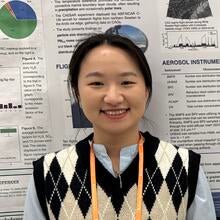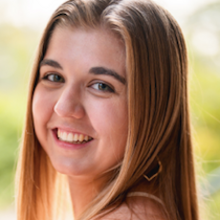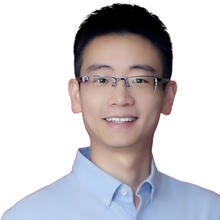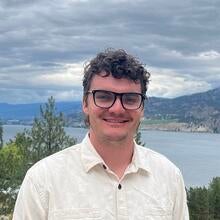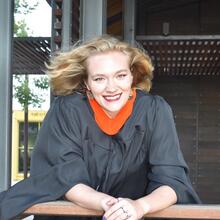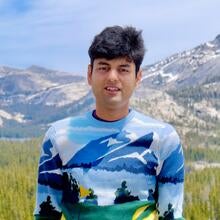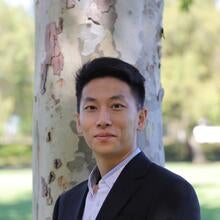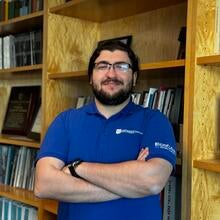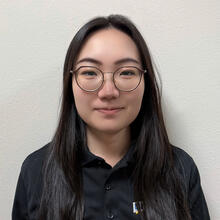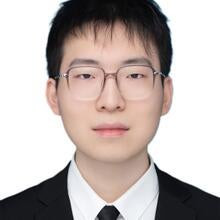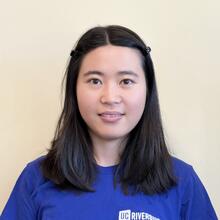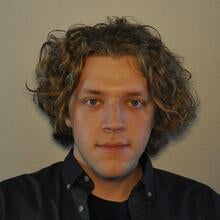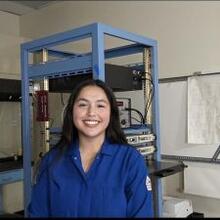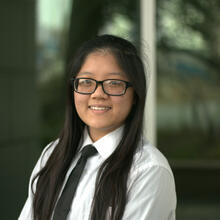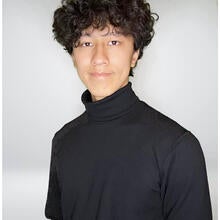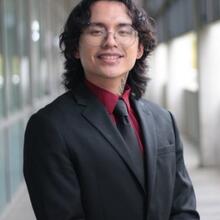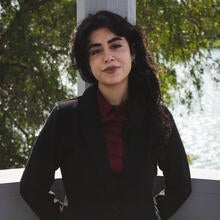CE-CERT Announces 2025-2026 Scholarship Recipients
CE-CERT is proud to announce the recipients of the 2025-2026 Scholarship Awards totaling $47,000. We would like to congratulate them on their hard work and thank our generous donors who made these awards possible.
Graduate Awards
Lintong Cai
Chemical and Environmental Engineering
Colin F. Hackett Graduate Award Recipient
Lintong has always been drawn to the connections between daily life and atmospheric science. Now a third-year Ph.D. student, she studies particles emitted in environments ranging from wastewater facilities to Arctic flight paths. Her work combines microscopy, sensors, and atmospheric modeling to improve how we predict pollution's impact. Lintong hopes to lead future research as a university faculty member.
Elizabeth DeFrance
Chemical and Environmental Engineering
Colin F. Hackett Graduate Award Recipient
Elizabeth is a second-year Ph.D. student researching overlooked vehicle emissions, specifically the fine particles released by brake and tire wear. She has developed new sampling systems to measure these pollutants on the road, helping regulators better understand their health impacts. Elizabeth is driven by a desire to support policies that make our air cleaner and communities healthier.
Minghao Han
Chemical and Environmental Engineering
Salim Khan Graduate Award Recipient
Minghao's research focuses on a category of emissions that often go unaccounted for: reactive gases from tire and brake wear. As a fourth-year Ph.D. student, he builds and deploys mobile systems to study how these gases form secondary aerosols in the atmosphere. His goal is to equip scientists and policymakers with better data to reduce exposure in cities. Minghao plans to continue this work as a postdoctoral researcher or scientist.
Troy Hurren
Chemical and Environmental Engineering
Pierson/Ford Graduate Award Recipient
Troy grew up restoring cars and is now applying that hands-on curiosity to emissions research. As a third-year Ph.D. student, he is evaluating hydrogen and alternative fuels in heavy-duty vehicles, as well as real-world ammonia emissions from gas-powered cars. His work supports clearer engine design and practical solutions to improve air quality. After improving his degree, Troy envisions applying his expertise in this field with a major OEM or as a university mentor.
Grace Johnson
Mechanical Engineering
Miller Durbin Graduate Research Award Recipient
Grace's career path began when she learned CARB was building a headquarters near her hometown. Today, as a third-year Ph.D. student and current CARB engineer, she studies how diesel and natural gas trucks pollute air, especially in disadvantaged areas. Her research feeds directly into regulatory tools that guide environmental protections. Grace is proud to serve the community through science and public service.
Sunandan Mahant
Chemical and Environmental Engineering
Esther F. Hays Graduate Fellowship
Growing up in the Himalayas, Sunandan developed a deep appreciation for the fragility of natural ecosystems. Today, as a third-year Ph.D. student, he studies how tiny airborne particles behave in the atmosphere–work that helps inform climate and public health policy. As a first-generation college student, Sunandan's path to research was non-linear, but his curiosity and drive have propelled him to address global environmental challenges through science.
Dongbo Peng
Electrical Engineering
Esther F. Hays Graduate Fellowship
Dongbo discovered his passion for transportation and energy systems through courses at UCR. Now a fourth-year Ph.D. student, he builds optimization models that help electric delivery vehicles save energy and time, especially under unpredictable conditions like traffic or delivery delays. He also develops charging strategies that align with renewable energy use. Dongbo is committed to advancing real-world tools for more efficient, lower-emission logistics systems.
Mike Stas
Electrical Engineering
Transportation Systems Research (TSR) Graduate Student Award Recipient
Mike's early exposure to robotics and machine learning led him to pursue advanced research in connected and automated vehicles. Now a fourth-year Ph.D. student, he develops sensor-integrated navigation systems that maintain vehicle accuracy even when GPS is blocked or spoofed. Mike is interested in bringing this work to national labs or the classroom, helping shape the future of intelligent, secure mobility.
Chuheng Wei
Electrical Engineering
Esther F. Hays Graduate Fellowship
Chuheng's fascination with the potential of technology to solve real-world problems led him to pursue intelligent transportation. As a third-year Ph.D. student, he is developing perception systems that help autonomous vehicles navigate in poor weather or in the presence of sensor failures. His work enhances the safety of self-driving systems for everyone on the road. Chuheng plans to continue designing applied technologies that make smart mobility safer and more reliable.
Yanyu Zhang
Chemical and Environmental Engineering
Esther F. Hays Graduate Fellowship
Yanyu's early struggles with respiratory health sparked a lifelong interest in air quality. As a fourth-year Ph.D. student, she investigates how common pollutants like gasoline fumes or pine tree emissions transform into harmful fine particles in the air. Her goal is to reduce exposure to particulate matter and support cleaner air for communities everywhere. She plans to continue this work as a professor, mentoring future researchers.
Ziyan Zhang
Electrical Engineering
Esther F. Hays Graduate Fellowship
Ziyan is passionate about using artificial intelligence to address global challenges. As a second-year Ph.D. student, he is building systems that help freight vehicles move more efficiently and reduce emissions at intersections. His work combines real-time sensor data, traffic control systems, and machine learning. Ziyan hopes to develop these scalable mobility solutions for smart cities worldwide.
Ying Zhou
Chemical and Environmental Engineering
Esther F. Hays Graduate Fellowship
Ying's concern for public health—especially in communities burdened by pollution—drives her research. A fourth-year Ph.D. student, she uses laboratory tools to study how environmental conditions influence the formation of airborne particles from real-world emissions. Her findings improve air quality models and inform cleaner air policies. Ying plans to bring her technical expertise to public-sector research that supports stronger protections for vulnerable populations.
Undergraduate Awards
Zachary Johnson
Chemical Engineering
Ford Undergraduate Award Recipient
Zachary's interest in chemical engineering began with childhood curiosity about his father's work and grew through hands-on experience in CE-CERT's OSAR lab, where he now researches truck emissions to help improve community health. He's now a third-year undergraduate studying emissions from trucks to determine when and where pollution peaks—insight that can help communities plan safer living spaces. Zachary hopes to pursue a Ph.D. and become a lead researcher on air quality issues.
Fidelia Lopez
Chemical Engineering
Jim Guthrie Research Award Recipient
Fidelia's curiosity about how things work led her to chemical engineering, and eventually to CE-CERT's aerosol research. She is now a fourth-year undergraduate investigating how solution chemistry affects nanoparticle formation during spraying. Her findings support better aerosol models and safer product design. Fidelia plans to continue working at the intersection of chemistry, public health, and sustainability.
Helen Nguyen
Environmental Engineering
Jim Guthrie Research Award Recipient
Helen has always wanted to help keep our environment clean for future generations. She studies how ammonia from cars impacts local air quality. By understanding pollutant behaviors, her work aims to develop practical ways drivers can reduce emissions and protect their communities. Helen plans to work in environmental regulation, with a focus on protecting clean water and clean air.
Eric Pang
Mechanical Engineering
Jim Guthrie Research Award Recipient
Jonathan Setiabudi
Computer Engineering
Jim Guthrie Research Award Recipient
Jonathan is a third-year undergraduate exploring how vehicles can communicate with each other to avoid accidents and reduce fuel use. His work on cellular V2X (vehicle-to-everything) communication supports the development of safer, more efficient autonomous driving systems. He aims to bring this technology to industry, helping create connected roads that work smarter and safer for all users.
Christopher Solares
Environmental Engineering
Jim Guthrie Research Award Recipient
Christopher's interest in air quality stems from growing up with environmentally conscious parents. Now a second-year undergraduate, he has designed a model to better interpret data from optical particle counters—tools that monitor pollution in real time. His work improves how we understand air quality in complex environments. Christopher hopes to pursue graduate studies and eventually work at an agency like CARB or SCAQMD.
Sarah Zohary
Environmental Engineering
Jim Guthrie Research Award Recipient
Sarah's commitment to air quality is rooted in personal experiences visiting family in Tehran, where poor air quality often kept people indoors. As a second-year undergraduate, she is studying how cooking oils and methods affect indoor air pollution, a major contributor to respiratory health issues. Sarah plans to pursue graduate studies in chemical engineering and expand her impact through research and education.
